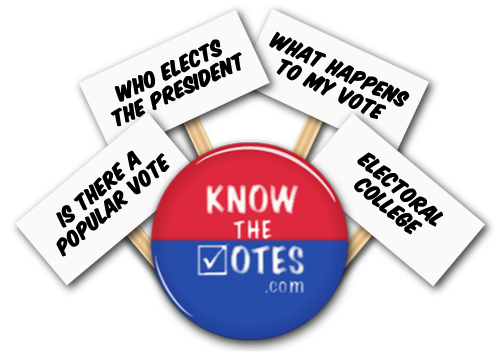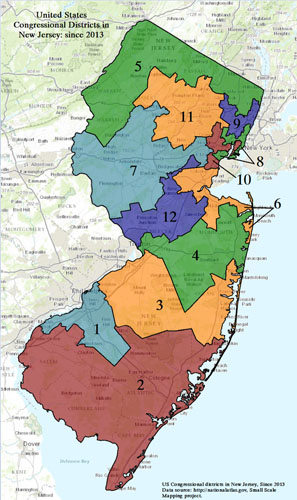The truth about New Jersey when voting in a general election for President of the United States:
In presidential years, the state conventions shall severally nominate for their respective parties such number of candidates for electors of president and vice president of the United States as this state shall be entitled to elect or appoint. The state committee of a political party shall certify such nomination. The State committee may also appoint a committee to whom shall be delegated the power to fill vacancies occurring prior to the election of the electors, howsoever caused, and the names and addresses of such committee shall be included in the certificate. The certificate of nomination and the acceptance thereof shall be filed with the Secretary of State.
If a nomination vacated is that of a candidate for elector of the President and Vice-President of the United States, the vacancy shall be filled by the committee to whom power shall have been delegated to fill vacancies if such there be, otherwise by the State committee of the political party which nominated the elector whose nomination is vacated. The chairman and secretary of the vacancy committee or State committee shall file with the Secretary of State a certificate of nomination for filling the vacancy.
The electors of president and vice president shall convene at the State House at Trenton, or in another State building within the State House Complex at Trenton, or the War Memorial at Trenton, on the day appointed by congress for that purpose, at the hour of three o’clock in the afternoon of that day, and constitute an electoral college.
When a vacancy shall happen in the college of electors, or when an elector shall fail to attend, by the hour of three o’clock in the afternoon of the day fixed by congress for the meeting of the college of electors, at the place of holding such meeting, those of such electors who shall be assembled at the hour and place shall immediately proceed to fill by a majority of votes such vacancy. If the members of the electoral college shall have been nominated and elected as representing different political parties, any vacancy occurring shall be filled by the elector or electors representing the same political party as the absent elector; and if there shall be no elector present representing the same political party as the absent elector, then such vacancy shall be filled by a majority of the electors present, who shall choose some person of the political party which the absent elector represents.
This other vote known as the electoral vote takes place on the first Monday after the second Wednesday in December in each of the fifty (50) states. The time of day when the electors gather to conduct this vote may vary from state to state, but the electoral vote happens on the same day in every state, the first Monday after the second Wednesday in December. Another interesting point to mention: this electoral vote is weeks after we the people have already cast a so-called vote.
What happens to these electoral votes? Each state has a certain number of electoral votes associated with their state. There are a total of five-hundred and thirty-eight (538) electoral votes to be exact, and only a total of two-hundred and seventy (270) of these electoral votes are required to determine the person who will become President of the United States.
Knowing the number of electors associated with each of the States, it is mathematically possible to have only eleven (11) states determine who will become the President of the United States.
The following eleven states add up to the two-hundred and seventy (270) electoral votes needed to determine who becomes President of the United States:
California (55 electoral votes)
Texas (38 electoral votes)
New York (29 electoral votes)
Florida (29 electoral votes)
Illinois (20 electoral votes)
Pennsylvania (20 electoral votes)
Ohio (18 electoral votes)
Georgia (16 electoral votes)
Michigan (16 electoral votes)
North Carolina (15 electoral votes)
New Jersey (14 electoral votes)
If these eleven (11) states end up having their electoral votes casted for the same candidate, the remaining thirty-nine (39) states would not matter at all. So… that vote you casted in the general election in November as a citizen… what was the purpose of your vote? The answer: NOTHING (when these eleven states have an electoral outcome as such) !!!
The time is NOW to understand that our country does not have a voting process in place whereby every citizen who wants to cast a vote is able to cast a vote and to then have his or her vote be accurately counted towards choosing the person who will become the next President of the United States.



